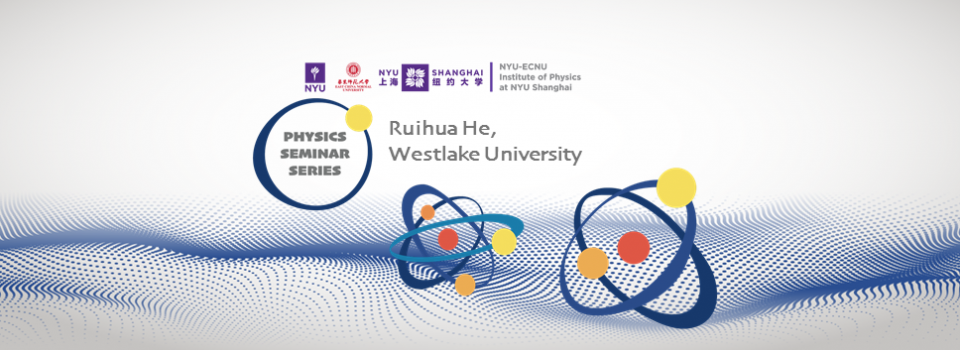
Abstract:
A central theme of modern condensed matter physics is to understand old and discover new emergent phenomena in quantum materials. These phenomena emerge through the collective behavior of electrons due to their mutual interactions (correlations) as well as interactions with other (charge, lattice, spin, and orbital) degrees of freedom in the systems. Each discovery of a new emergent phenomenon offers a potential opportunity to fundamentally change our understanding of the organizing principles of condensed matter, and to create a new basis of modern technology. Study of these interesting phenomena demands the use of a combination of multiple experimental techniques, with each being sensitive to a different aspect of the complex problem and capable of providing complementary insights necessary for forging a global understanding. Such an integrated experimental approach has been frequently applied to my past research under different themes, specifically, with the aims to understand known emergent phenomena, to discover new emergent phenomena, and to realize novel functionalities arising from those phenomena. Examples will be given in this talk for each of these themes, including our discovery of a new emergent phenomenon in solids—3D negative electronic compressibility: The occurrence of this phenomenon is driven by the electron correlations; This finding opens the door to an uncharted territory of negative compressibility research that potentially features a whole variety of bulk quantum materials and promises unique applications in low-power nanoelectronics and novel metamaterials. Future plan will be outlined for further explorations on emergent phenomena mainly based on an all-in-one ultra-high vacuum system for integrated surface analysis currently under construction at Westlake University.
Biography:
Rui-Hua He is an Associate Professor (tenured) in Physics of the School of Science at Westlake University and an Affiliated Professor in Physics of the College of Science at Northeastern University (USA). He received his Bachelor's (Master's) degree from Fudan University in 2001 (2004) and Ph.D. in Applied Physics from Stanford University in 2010. Dr. He was a postdoctoral fellow at the Advanced Light Source of Lawrence Berkeley National Laboratory (2010-2012) and an Assistant Professor in Physics at Boston College (2012-2017). He was a recipient of the U.S. National Science Foundation Faculty Early Career (CAREER) Award in 2015, and is currently an Academic Editor of the Scientific Reports journal. Dr. He has been engaged in the study of various emergent phenomena in strongly correlated electron materials, mainly using multiple complementary experimental techniques based on synchrotron x-ray and ultraviolet lights, and published 5 papers in the Science and Nature journals as a first or corresponding author.
Seminar by the NYU-ECNU Institute of Physics at NYU Shanghai


